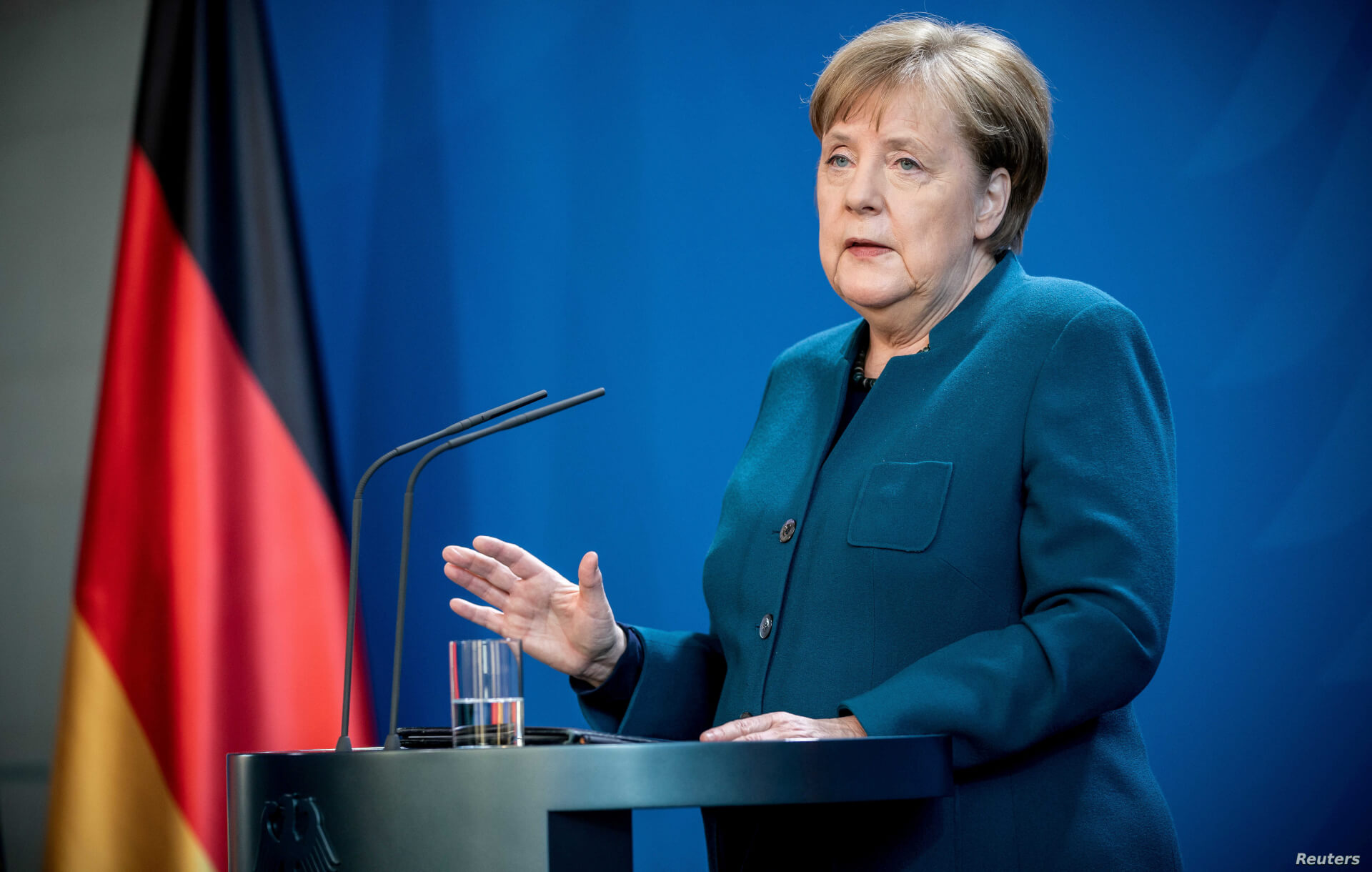German Chancellor Angela Merkel issued a scathing rebuke of the “outrageous” cyberattack by Russian military intelligence on the German parliament in 2015 after she claimed to have obtained “hard evidence” of Russian interference.
German news outlet Der Spiegel reported that Russian military intelligence obtained e-mails from Merkel’s parliamentary office and Germany’s lower house of parliament–the Bundestag–in 2015. Over 16 gigabytes of data were stolen, including confidential e-mails from lawmakers. The hackers also copied two of Merkel’s e-mail accounts, which contained correspondence from 2012 to 2015.
Such events have precipitated incredible distrust and disharmony in Germany’s relationship with Russia, with Germany’s intelligence service repeatedly accusing Russian hackers of spying on lawmakers or leading politicians. Merkel hinted that this latest discovery only serves to further destabilize already fractured relations between the two nations.
Merkel said, “I can say honestly that this pains me: on the one hand, I work every day for a better relationship with Russia, and when you see on the other hand that there is such hard evidence that Russian forces are involved in acting this way, this is an area of tension, which is something that – despite the desire for good relations with Russia – I cannot completely erase from my heart.” She warned that Germany “reserve[s] the right to take measures, including against Russia”. Nevertheless, she remarked that while this latest event “naturally doesn’t make it easier” to maintain a good relationship with Russia, she remains committed to preserving diplomatic ties.
Intelligence experts from Germany and the American Federal Bureau of Investigation (FBI) have determined that the attack was carried out by the hacker group APT28, otherwise known as Fancy Bear, working for GRU, Russia’s military intelligence service. In fact, last week, federal prosecutors issued an arrest warrant against Dmitriy Badin, who is allegedly a GRU officer. US authorities are also seeking the arrest of Badin.
Russia is also accused of meddling in the 2016 US presidential election and carrying out cyberattacks against other Western nations and institutions. This latest event has not only worsened Germany-Russia relations but relations between Russia and the European Union (EU) at large. In March, an EU report claimed that Russia has been pursuing a “significant disinformation campaign” during the ongoing coronavirus pandemic to aggravate the public health crisis in Western countries. The document states that pro-Kremlin media outlets have aimed to undermine public trust in western healthcare systems, and disseminated fake news online in English, French, Spanish, Italian, and German. These disinformation campaigns spread the erroneous theory that the coronavirus is a biological weapon deployed by China, the US, or the UK. Other conspiracy theories contend that the outbreak was caused by migrants or that it is a hoax.
Russia has denied any part in coronavirus misinformation campaigns, calling the allegations unfounded and lacking in common sense. Similarly, in 2018, Russian foreign ministry spokeswoman Maria Zakharova denied that Russia had hacked the Bundestag, joking, “We broke into the Bundestag only once, in 1945, while liberating Berlin from the Nazi scourge. At that time, it was called the Reichstag.” In the face of mounting evidence of Russian interference and malicious activities across the Western world, Russian claims of innocence are likely to fall on deaf ears. In fact, Merkel said that the “distortion of facts” is part of “Russia’s strategy”.
Germany Obtains “Hard Evidence” That Russia Hacked Parliament in 2015
German Chancellor Angela Merkel called the cyberattack “outrageous” and “painful”.
May 15, 2020

IMAGE SOURCE: MICHAEL KAPPELER / APGerman Chancellor Angela Merkel
